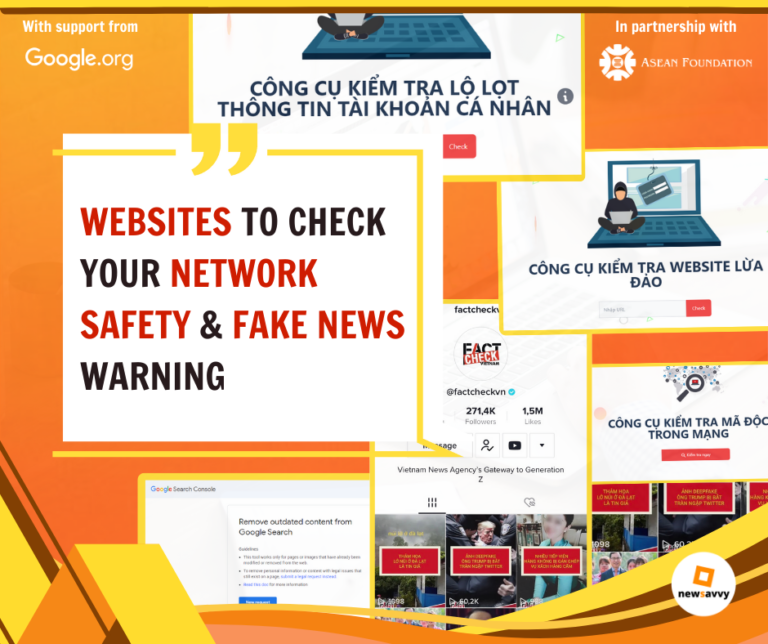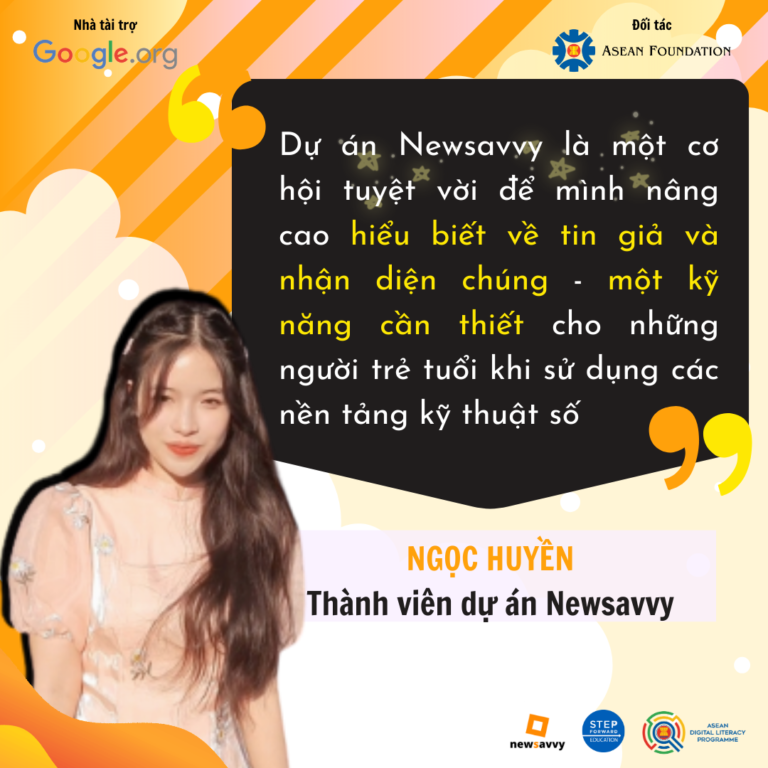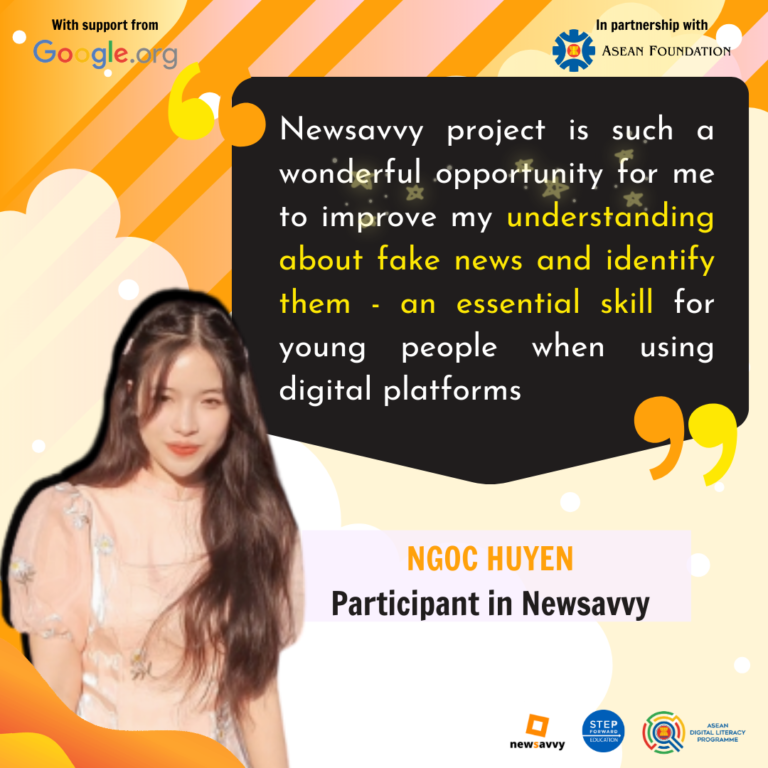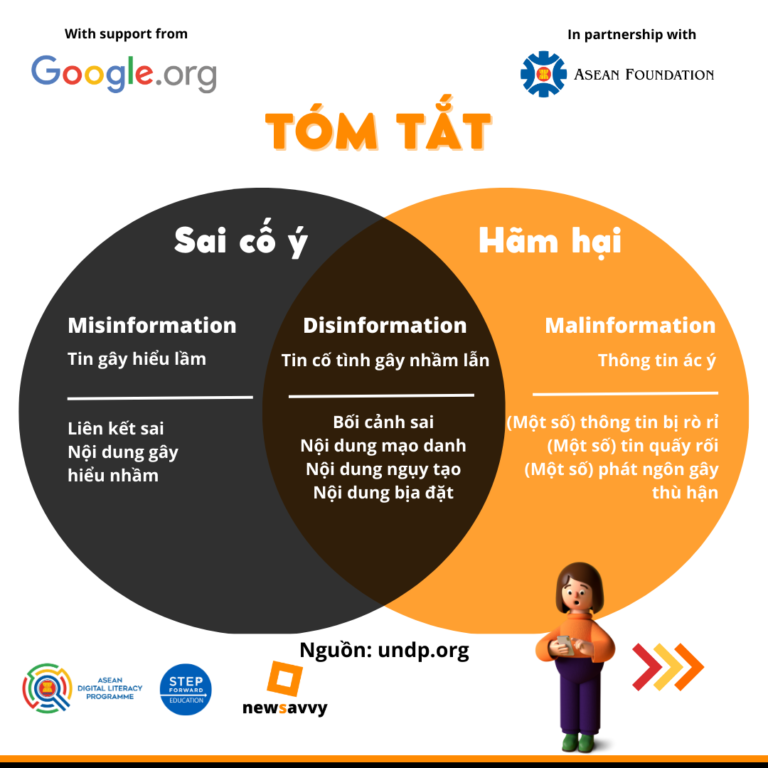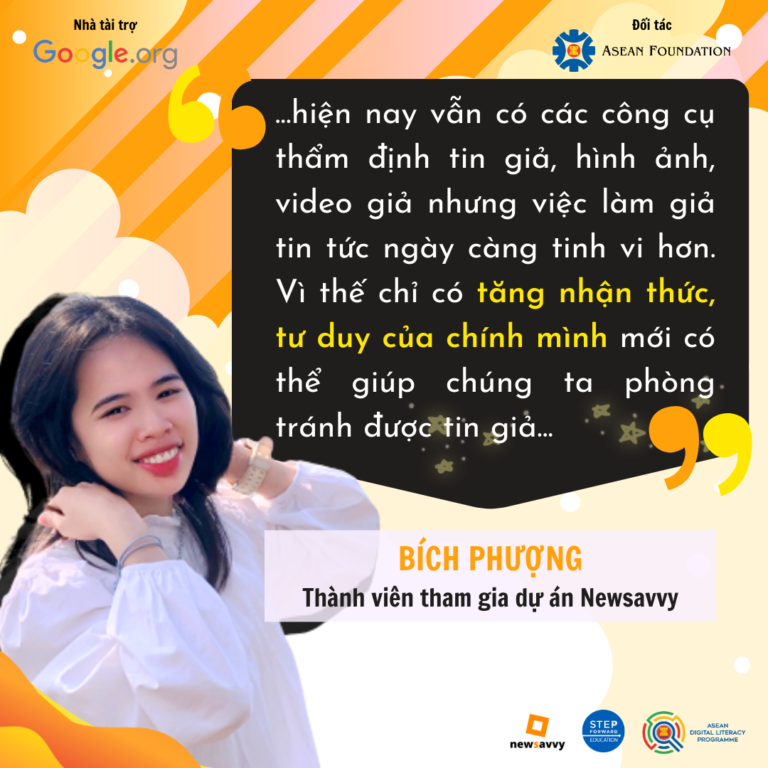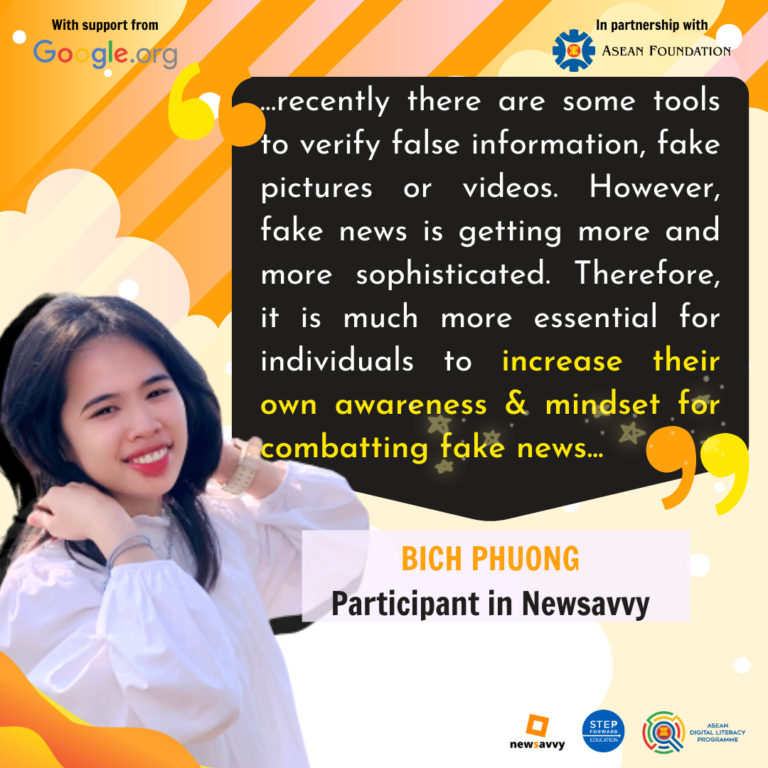An Thu: “Social media is a fertile land for fake news and incite viewers”
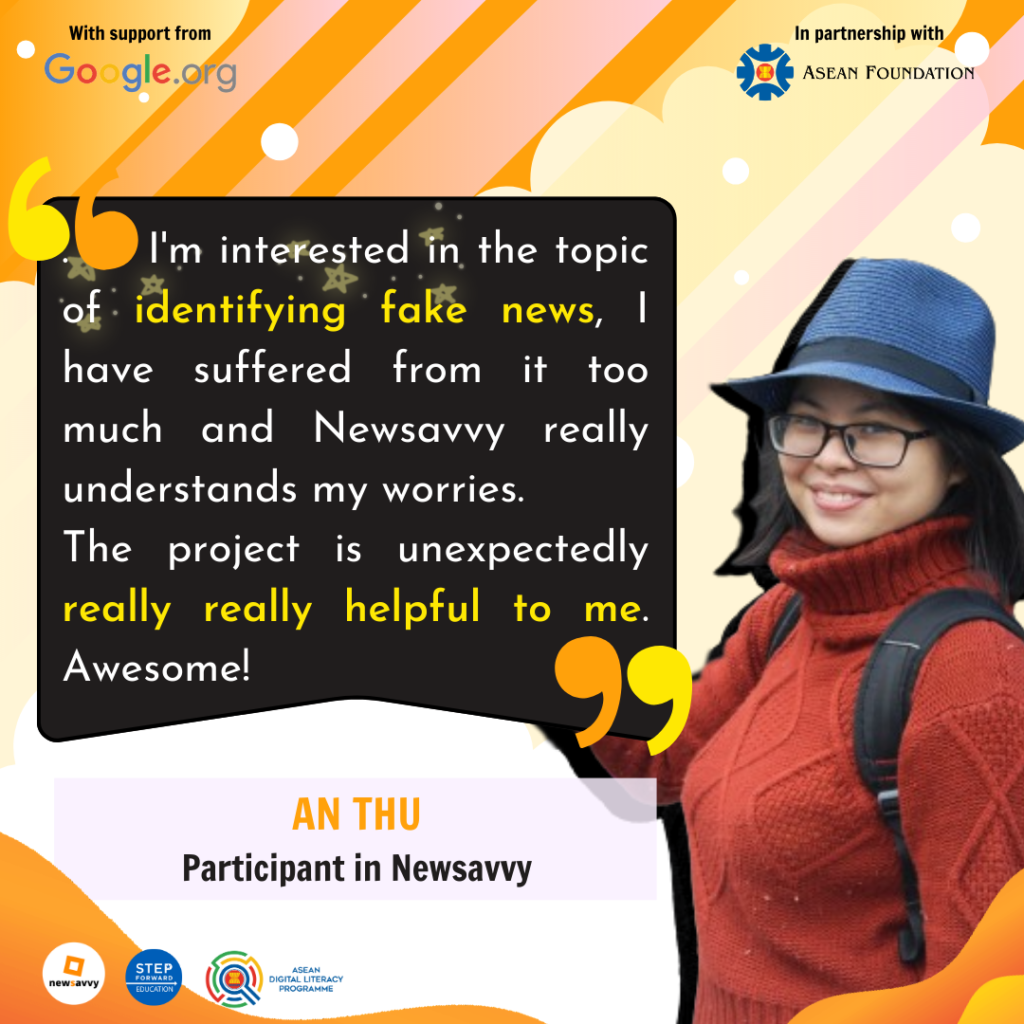
I joined the program because I am very interested in the topic of identifying fake news. I was deceived too much in the past and Newsavvy really understands my heart, my worries.
During the Covid-19 pandemic, many people distorted the truth and spread fake news about the disease, which made everyone stressful and anxious.
Thanks to Mr. Tri’s sharing during the workshop, I realised that fake news is often more interesting and sensational than official news.
Fake news is often not as innocuous as it seems. When reading fake news, many people skim through it and probably get angry. However, the truth is that fake news is aimed at a certain group of audience, which can cause terrible consequences.
It is very easy to post and share short videos on social media which is a fertile land for fake news and incite viewers.
Here are some tips that I learn from the case study watching a clip of controversial content in workshop with Mr. Tri:
- Is the speaker wearing a mask? Check if the person is really speaking with their voice or dubbed?
- Is there any noise or blur in the transition during the clip?
- Is it logical?
Those are the questions that should be asked to be more critical and alert to the mixed true and false information.
If we are not sure about the content, it’s better not to believe and interact with the video (like, share).
About Newsavvy project, I knew it thanks to my teacher’s recommendation Facebook ads. Participating in the program is a great decision because everything I learned is extremely helpful. What a wonderful Newsavvy organizer team!

